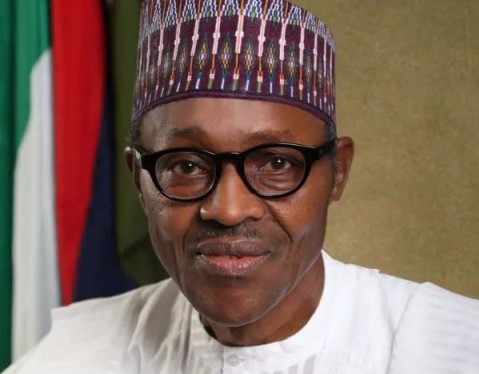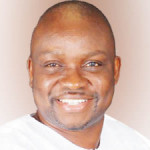Can Nigeria Become a Nation under Buhari? Responding to the Imperatives of Building a United Nation
Articles/Opinion, Latest Headlines Saturday, November 14th, 2015
Listening to and probing deeper into the sentiments of Nigerians, tells you something ominous and it is the fact that there are yet very deep cracks within the notion of Nigeria’s nationhood.
The ethnic sentiments often couched in speeches or responses to national issues, captured in the body language and emotional sensibilities of well-placed and common Nigerians, provides a gauge to check where we are in building a united nation.
45 years after the end of Nigeria’s civil war, here lies at the centre of the Nigeria psyche, an insidious, choreographed prototype of nationalism that is at best a false one.
It would be pedantic to dwell again on the historical misadventure of Nigeria’s amalgamation of 1914, which artificially brought together intrinsically disparate peoples who are almost, always divided on issues of religion and ethnicity.
To overlook these overarching differences, concealed under the false caveat of nationalism poses a mortal danger to the nation itself.
Buhari inherited a nation that has not made much progress in resolving underlining historical issues.
For Instance, why is it a requirement for a Nigerian to identify his tribe of origin before he has eligibility to work outside his own place of birth?
The idea of putting ones tribe of origin ahead of one’s nationality imposes on people an obsessive awareness of their tribe rather than their sovereign sense of Nigeria-nationalism.
The resurrection of ethnic consciousness and strife within the last 20 years, are livid expressions of irritation, pent-up rage and frustrations within a nation that is falsely constituted.
For instance, there are some identifiable elements of obstructive national vision in some religions, which negates the idea of national leadership coming from other people in other religions other than theirs.
There may have been some latent subconscious submissions that the British colonial Masters, intentionally left in the minds of some regional elites that has helped in formulating their political and cultural opinions within the broad Nigeria context.
A good example is pronouncements coming from some northern leaders in the past and much recently which seems to suggest that holding power at the centre has always and should be the prerogative of the northern people.
To what extent have we allowed religious sentiments flow into the social and political stream of the country and altered what should be a rational, well-accepted perspective?
What constitutes Nigeria’s demographics? Do we have an ethically correct and well-corroborated census records? What do Nigeria’s political demographics depict?
A balanced, prudently declared and constituted local government constituents, not just thrown up
to garner desperate and much needed political advantage over others? Or have we well-balanced state structures? And indirectly an asymmetric resource-sharing formula?
Can we have the nerve and patriotic honesty to carry out viability audit checks on these constituencies round the country and correctly amend deficiencies or resource-imbalance if any?
An impassioned look at Nigeria’s working constitution would reveal, how out-moded and lopsided it has become in administering the evolving and dynamic realties of a postmodern era.
For example, the constitution we inherited was drafted by the military and partly amended by the same military but under different regimes. And both were done under military fiat and despatch.
Successive civilian administrations have often not being able to tinker and make amends to the constitution in key, contentious areas, simply for the reason of obvious collusion by some northern politicians who are aware of the fraundently concocted national structure that has given their northern region massive political advantage.
The northerners as we learnt are surreptiously making moves and taking calculated political steps to frustrate the fruition of the well-articulated document brought to being by Good luck Jonathan’s administration, under a well-funded, representative constitution-amending exercise.
Shouldn’t we have a constitution that reflects the fiscal and demographic realities as they are?
Buhari’s challenge and the biggest one for that matter would well be the opportunity to bring Nigerians into an honest dialogue, where Nigeria’s seemingly intractable problems, cleverly camouflaged as “no-go-areas”, simply because they are feared to be capable of upsetting the irrational but dubious tendencies of Nigeria’s ruling elites, are finely thrashed out and creative and pragmatic solutions proffered.
Buhari may wish to listen to the tone and pulse of the nation and its people and be moved to stage a revolutionary people’s action that could meet both the material and psychic needs and aspirations of the people of Nigeria.
It would be a utopia to think that all the needs of the people of Nigeria would be met in one bound. Not at all, but to take on issues that hunts the wellbeing of the masses, is not just a bright start but looms with powerful and redemptive prospects.
At such points when an Igbo man, would speak less of his supremacy over the Yoruba man, and the Yoruba man, not feel an irritation with the prospect of an Igbo man becoming Nigeria’s president and the Hausa man not taking up arms to fall his countrymen because of his mythic obsession “that power belongs to the north”. Then we can begin to hope that a nation is taking shape.
Being a nation transcends the geographic parameters that define its existence, or the 200 million people living in the carved up space. It cuts deeper into the social, cultural and spiritual consciousness that binds the people inextricably as one people, who are aspiring to a solid, yet intangible vision of national greatness and glory.
At the moment, Nigeria is devoid of any such genuine collective aspiration; only occasionally do we espouse such unity, and for it to soon splinter in collision and disappears with the massive wall of ethnicity.
Buhari may build Nigeria’s economy to become the best and biggest and make corruption a thing of the past. It’s only when we are a nation, and live as one, would these achievements and legacies endure.
Related Posts
Short URL: https://www.africanexaminer.com/?p=27487






















